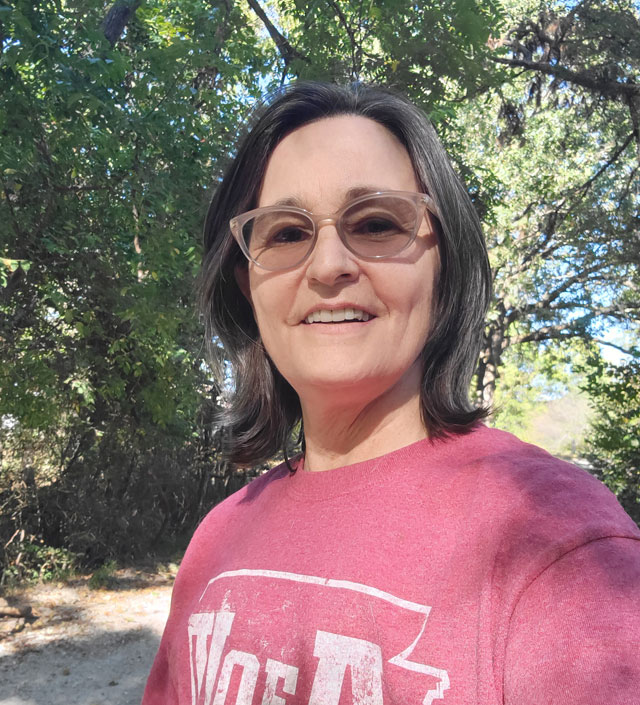Editor’s Note: This article is part of a series that Rethinking65 is doing on viewpoints of industry leaders who attended the 2023 Schwab Impact conference.
“Does it feel like to you that there are more disasters than there ever have been? It just feels like every week — a hurricane, a humanitarian crisis, an earthquake,” Fred Kaynor, a managing director at Schwab Charitable, said during our conversation on Oct. 25 at the Schwab Impact conference in Philadelphia.
I had asked if he was still seeing a lot of grantmaking to Ukraine amid more recent crises including the Maui wildfires and the Israel-Hamas war, launched less than three weeks earlier.
Yes, and the newer disasters have also received tremendous grantor support, he said.
Schwab Charitable, one of the nation’s largest providers of donor-advised funds, typically posts resources to its website 24 to 48 hours after a disaster strikes, said Kaynor, who oversees marketing, business development and strategic partnerships for the 501(c)(3) public charity.
“We try to get as much information up and running as quickly as we possibly can because we know how passionate our donors are about wanting to provide support wherever they can,” he said.
He also posts right away about these causes on LinkedIn, and Schwab Charitable revises the content on its website as more information becomes available. “There’s an actual section on disasters, as tragic as that sounds,” he said.
Outreach pays off
Shortly after the Maui wildfires began in early August, Schwab Charitable posted resources, including a link to the Hawaii Community Foundation. “Within two weeks, people had given over $8 million to Hawaii and it was just amazing,” Kaynor said.
Within days of the Oct. 7 terror attacks on Israel and outbreak of war, Schwab Charitable posted an information page with resources on how to help those impacted by the violence in Israel and Palestine.
“Again, equally amazing generosity from our donors to those organizations that we feature to try and provide relief and recovery support for people in both Gaza and in Israel,” said Kaynor.
Dozens of vetted charities
Schwab Charitable shares resources recommended by its partner, the Center for Disaster Philanthropy. The nonprofit “provides us with a list of vetted charities that are providing boots-on-the-ground service to people impacted by those disasters,” said Kaynor. To make the tax piece easier, Schwab Charitable includes the charities’ employer identification numbers (EINs).
Among the more than two-dozen relief groups that Schwab Charitable lists for the Middle East conflict are American Friends of Magen David Adom (Israel’s medical emergency and blood services organization), Doctors Without Borders, International Committee of the Red Cross, Islamic Relief USA, IsraAid US, the Palestine Children’s Relief Fund and World Central Kitchen.
Visitors to the Schwab Charitable website can also read how to support people impacted by Hurricane Idalia; earthquakes in Afghanistan, Morocco, Turkey and Syria; flooding in Libya and Pakistan; and the Russia-Ukraine war that began in February 2022.
Schwab Charitable continues to provide its donors with information about disasters long after the initial crisis hits. “It’s not to push them to give,” said Kaynor, “but simply to give them a resource and remind them that when these disasters occur, there’s not only the immediate need but also the ongoing issue that needs to be addressed to help [victims] with rebuilding and establish normalcy to their lives,” said Kaynor.
It seems to be working. “People give a lot at the time that disaster occurs, but now we’re now seeing a trend to maintain that consistency,” he said.
Disaster-giving drives record grants
Some donors are setting up recurring donations — monthly, quarterly, twice a year or annually — to ensure that “those critical resources are provided on an ongoing basis,” he said. “We encourage them to think about it in terms of their overall philanthropic mission.”
During its fiscal year ended June 30, 2023, Schwab Charitable donors granted more than $5 billion to charity (a record) and surpassed 1 million individual grants for the first time in its history.
“Much of that spike was attributable to donors giving incrementally to those disasters, which is just exceptionally generous of them,” Kaynor said.
Schwab Charitable also periodically engages in digital outreach to its donors to remind them of the four stages of disaster relief: mitigation, preparedness, response and recovery. Most people focus their granting on the response stage (usually within 90 days after a disaster), but the recovery stage could take months or years, said Kaynor. Granting dollars for mitigation and preparedness efforts can also help lessen the impact of some disasters.
People who have already allocating assets to a donor-advised fund find it easier to give to a cause during times of need, no matter how the markets or economy are performing. While they’re waiting to grant, donors can park their assets in any combination of 15 different investment pools, which include everything from low-cost indexes to actively managed funds.
The intention is for the contributions to grow and provide donors with more to grant than the amount they contributed to their accounts, said Kaynor.
Almost anything goes
Granting to a U.S.-based organization 501(c)(3) that operates abroad “is probably the easiest and most expeditious way” to do international granting, he said. He noted that the nonprofits in Schwab Charitable’s database are in good standing with the IRS.
Schwab Charitable can also work with nonprofit intermediaries that identify charitable organizations outside the U.S. that support particular needs or areas, said Kaynor. Donors can make grants to those intermediaries which then distribute funds to the foreign organizations.
Donors often make big contributions when they take a company public or receive a large inheritance, he said. Some donors think more about making charitable donations when they retire. Most contributions to Schwab Charitable accounts are financial assets such as appreciated securities and restricted stock.
By contributing non-cash assets that have appreciated, “donors can avoid capital gains, which could be up to 20% of the value of the asset,” said Kaynor. Instead, “that 20% now goes into their accounts.” As for depreciated assets, Schwab Charitable can accept them “but they generally don’t have same tax benefits,” he said.
Schwab Charitable has also accepted other types of contributed assets from donors, including real estate, collectibles, Lamborghinis, quarter horses, grain and a partial interest in an NFL team, said Kaynor. For help managing riskier, partially leveraged or complex assets that need to be liquidated, Schwab Charitable partners with the nonprofit Dechomai Foundation.
Beyond ‘checkbook philanthropy’
More than three-quarters (77%) of the assets held in Schwab Charitable accounts are associated with advisors, said Kaynor, and 88% of advisors now offer charitable planning as part of their practice. In addition, “we have seen such a spike in ultra-high-net families” who want to make this a multigenerational effort, he said.
“They don’t want to just do checkbook philanthropy where they write a check or give cash,” he said. “They want to do it in a thoughtful way where they’re going to have the biggest impact,” and the donor-advised fund platform gives them the opportunity to do that in a tax-efficient manner.
Donors “don’t necessarily want multiple generations to share the same passion they have,” he said, such as education or human service, “but they want them to share this legacy of giving back.”
Staying focused
As our conversation came to close, we turned again to current events. “As tragic as everything is that’s going on in Israel and the Middle East,” he said, “Ukraine, which was daily at the top of the news, now all of a sudden no one’s hearing about it — and it’s just as horrible as it was before.”
“We just have to do what we can and this donor-advised fund is making a difference. I promise.”
Jerilyn Klein is editorial director of Rethinking65







